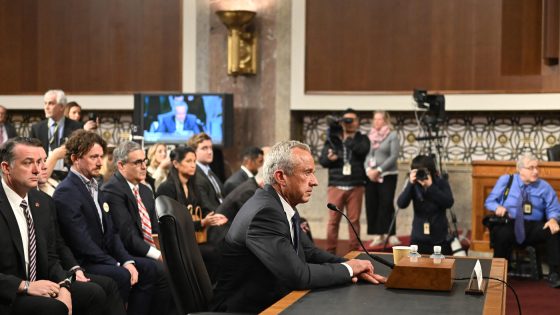The recent summit of European far-right leaders in Madrid highlighted their ambition to emulate Donald Trump’s political style. On February 8, 2025, Santiago Abascal, the leader of Vox, hosted this gathering, where the slogan “Make Europe Great Again” resonated throughout the event. The attendees rallied against the European Union’s policies, emphasizing a push for national sovereignty and a rejection of immigration.
- European far-right leaders gather in Madrid
- Emphasis on "Make Europa Great Again" slogan
- Criticism of green transition policies
- Marine Le Pen rejects immigration pact
- Viktor Orbán advocates for Christian values
- Venezuelan opposition leader calls for support
European Far-Right Summit in Madrid Mirrors Trump’s Political Strategy
What does the rise of far-right politics in Europe mean for the united states? The Madrid summit brought together influential leaders like Marine Le Pen and Viktor Orbán, all echoing Trump’s themes of nationalism and anti-immigration. Their united front could signal a shift in European politics, reminiscent of the populist movements seen in the US.
Key Themes from the Madrid Summit and Their Global Implications
The Madrid summit was marked by several key themes that resonate with global audiences:
- Anti-EU Sentiments: Leaders criticized the European Union’s influence on national sovereignty.
- Immigration Concerns: A strong focus was placed on opposing immigration policies, labeling them as invasions.
- Green Policy Critique: Speakers condemned the EU’s green transition as detrimental to economic stability.
- Nationalism: A call for a return to national values and identity was a recurring theme.
Impact of Far-Right Rhetoric on European Politics
The rhetoric used by leaders like Matteo Salvini and Marine Le Pen emphasizes a rejection of the EU’s overarching policies. Their speeches highlighted a desire for “less Europe and more freedom,” aiming to rally support from citizens disillusioned with current governance. This could lead to a more fragmented Europe, with potential parallels in the US political scene.
Public Response and Future Prospects
The public reaction at the summit was overwhelmingly positive, as attendees cheered for leaders who promised to fight against perceived threats from immigration and EU regulations. This enthusiasm may indicate a growing base for far-right movements across Europe, which could inspire similar movements in the US, where nationalism is also on the rise.
Global Trends and the Rise of Nationalism
The Madrid summit reflects a broader trend of nationalism gaining traction globally. As leaders from various countries unite under similar ideologies, the implications for international relations and domestic policies in the US could be profound. Observers must consider how these movements might influence political discourse and policy-making in their own countries.





























